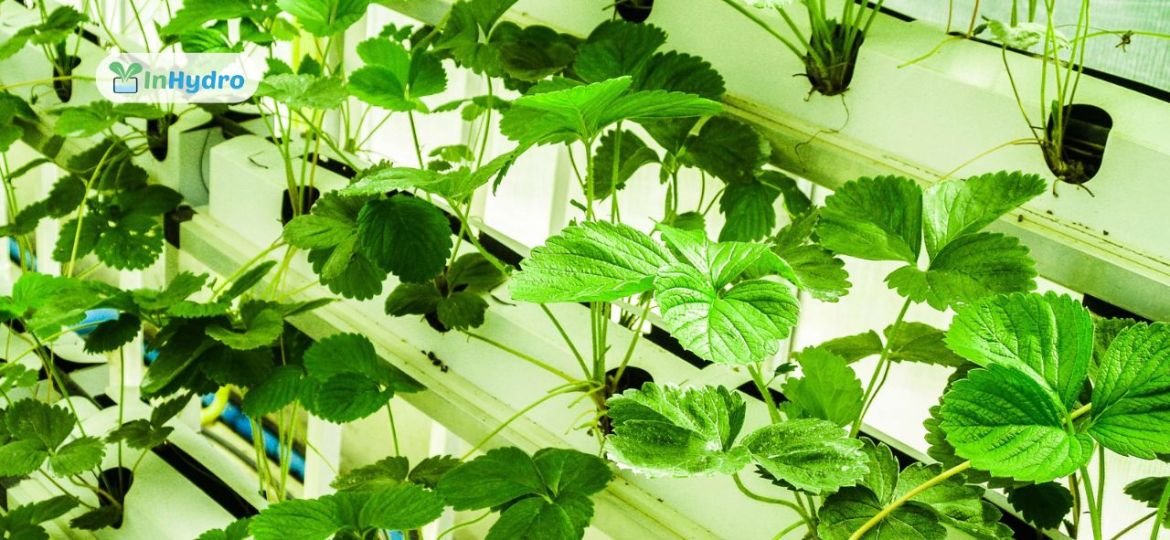
Hydroponics in 2025: Emerging Trends Shaping the Future of Farming
The year 2025 marks a pivotal moment in agriculture as hydroponics continues to redefine how we grow food. With global concerns about food security, urbanization, and climate change, hydroponics has emerged as a sustainable and scalable farming method. This soil-less cultivation technique is not only resource-efficient but also adaptable to urban environments, making it a key player in the future of farming.
This article explores the emerging trends in hydroponics in 2025, highlighting innovations that are reshaping the agricultural landscape.
Automation and AI Integration in Hydroponics
As technology advances, automation and artificial intelligence (AI) are becoming integral to hydroponic farming systems. In 2025, hydroponic farms are leveraging AI-powered systems to monitor and adjust critical parameters such as nutrient levels, pH, and lighting.
- AI for Precision Farming: AI algorithms analyze plant health data in real time, allowing farmers to make informed decisions and optimize crop yields.
- Automation in Farm Management: Automated irrigation, nutrient dosing, and environmental controls reduce labor costs and increase efficiency.
This trend is making hydroponics more accessible to urban and commercial farmers, allowing for higher scalability with minimal manual intervention.
Rise of Vertical Farming
With urbanization at an all-time high, vertical farming is gaining significant traction in 2025. Hydroponic systems are now being integrated into vertical farms to maximize space utilization in urban settings.
- Benefits of Vertical Hydroponics: Using vertical towers or stacked layers, farms produce more crops per square foot.
- Urban Agriculture Applications: Vertical hydroponics is being adopted in cities, transforming rooftops, warehouses, and unused urban spaces into high-yield farms.
This approach not only addresses land scarcity but also ensures year-round production of fresh produce in controlled environments.
Sustainable Practices and Renewable Energy Integration
Sustainability is no longer optional—it’s a necessity. Hydroponic farms in 2025 are adopting renewable energy sources such as solar panels and wind turbines to power their operations.
- Water Recycling Systems: Closed-loop hydroponic systems recycle water, reducing consumption by up to 90% compared to traditional farming.
- Green Energy in Farms: The integration of renewable energy makes hydroponics a zero-emission farming solution, supporting global sustainability goals.
As consumers demand eco-friendly food options, these practices are positioning hydroponics as the future of sustainable farming.
Customized Nutrient Solutions for Diverse Crops
In 2025, hydroponic farming is evolving to accommodate a broader variety of crops beyond leafy greens and herbs. Customized nutrient formulations are enabling the successful growth of fruits, root vegetables, and even grains.
- Tailored Nutrient Profiles: Farms are now able to design crop-specific nutrient solutions, optimizing growth for a wide range of plants.
- Expanding Crop Diversity: Hydroponic systems are producing tomatoes, strawberries, carrots, and even rice with greater efficiency and quality.
This trend is expanding the market for hydroponics, making it a viable option for diverse agricultural applications.
Hydroponics for Food Security and Urban Resilience
As climate change intensifies, traditional farming faces increasing risks from extreme weather conditions. In 2025, hydroponics is emerging as a solution to enhance food security and urban resilience.
- Disaster-Proof Farming: Indoor hydroponic systems are unaffected by droughts, floods, or pests, ensuring reliable food production.
- Localized Food Production: Urban hydroponics reduces dependence on long supply chains, cutting transportation costs and ensuring fresh produce for local communities.
Governments and organizations are investing in hydroponic projects to strengthen food systems and reduce vulnerability to climate-related disruptions.
Affordable Home Hydroponics Systems
Hydroponics is no longer limited to commercial or industrial-scale operations. In 2025, compact and affordable home hydroponics systems are gaining popularity among hobbyists and urban dwellers.
- DIY Kits and Modular Systems: Home gardeners can now purchase pre-assembled hydroponic kits for growing vegetables and herbs in small spaces.
- Integration with Smart Devices: Many systems are equipped with IoT (Internet of Things) technology, allowing users to monitor and manage their crops via smartphone apps.
This trend is empowering individuals to grow their own food, promoting self-sufficiency and sustainability.
Education and Awareness in Hydroponics
Educational initiatives are playing a vital role in the growth of hydroponics in 2025. Schools, universities, and community programs are incorporating hydroponic farming into their curriculums to raise awareness about sustainable agriculture.
- Hydroponics in Schools: Interactive workshops and classroom setups introduce students to the basics of soil-less farming and its environmental benefits.
- Community Hydroponic Gardens: Urban neighborhoods are establishing communal hydroponic gardens to promote collaboration and local food production.
By educating the next generation, hydroponics is being positioned as a mainstream farming solution for the future.
Government and Corporate Investments in Hydroponics
Governments and corporations are recognizing the potential of hydroponics to address global food challenges. In 2025, significant investments are being made to expand hydroponic infrastructure and research.
- Incentives for Hydroponic Farming: Governments are offering grants and subsidies to encourage farmers to adopt hydroponic methods.
- Corporate Partnerships: Companies in the tech and agriculture sectors are collaborating to develop advanced hydroponic systems and promote large-scale adoption.
These initiatives are accelerating the growth of the hydroponics industry, making it a cornerstone of modern agriculture.
Conclusion
The future of farming is here, and hydroponics is leading the way. In 2025, emerging trends such as automation, vertical farming, sustainability, and crop diversification are shaping a more efficient and resilient agricultural system. From urban rooftops to home gardens, hydroponics offers solutions for food security, environmental conservation, and self-sufficient living.
As these trends continue to evolve, hydroponics is poised to revolutionize farming on a global scale, ensuring a greener and more sustainable future for generations to come.

